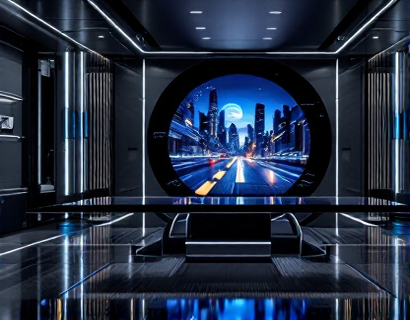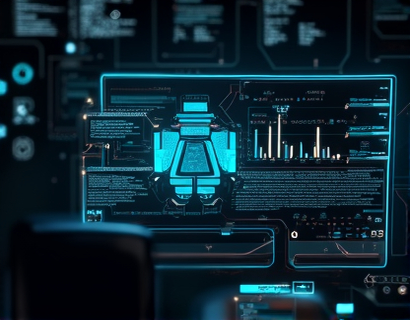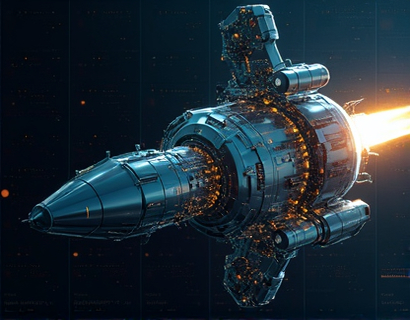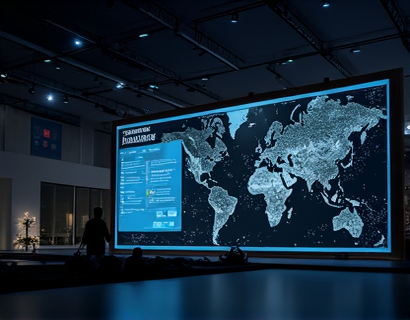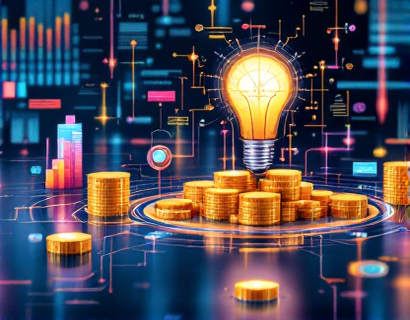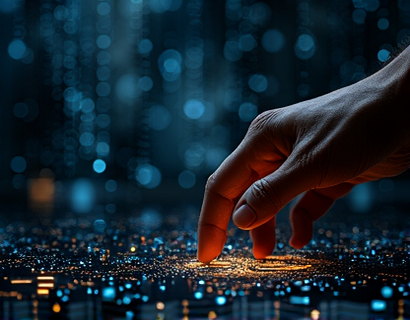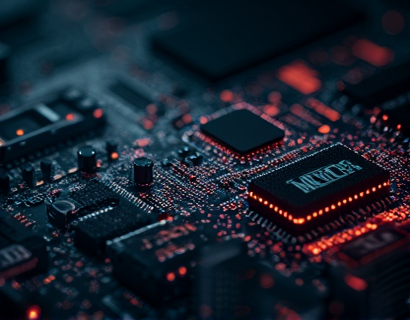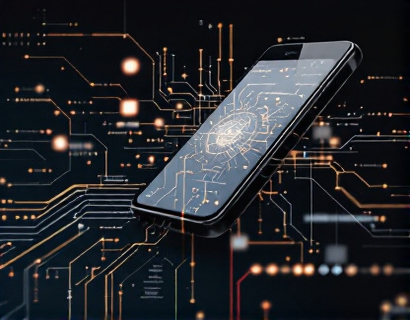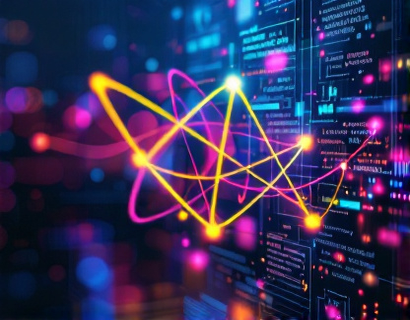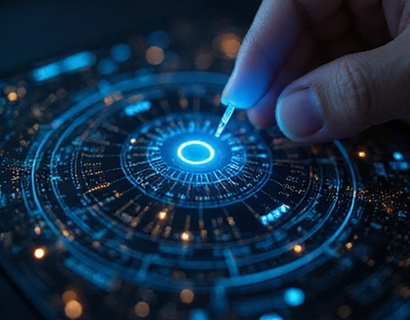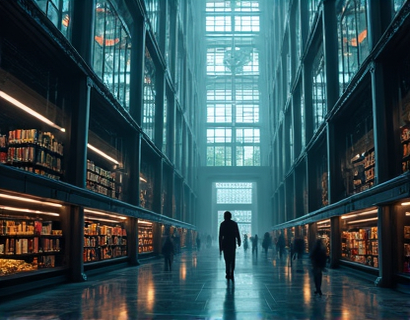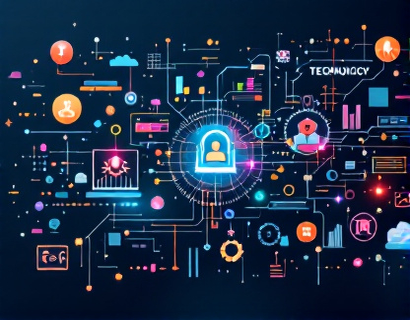Unlocking Decentralized Potential: AI-Driven Solutions for the Next Generation of Digital Transformation
The digital landscape is undergoing a profound transformation, driven by the convergence of artificial intelligence and decentralized technologies. This shift promises to redefine how we interact with digital services, enhancing security, efficiency, and user empowerment. At the heart of this revolution are AI-driven solutions that leverage the unique capabilities of decentralized systems, particularly cryptocurrencies, to create a more interconnected and resilient digital ecosystem.
Decentralization, by its nature, distributes control and decision-making across a network, reducing the risk of single points of failure and enhancing transparency. When combined with AI, this model can lead to innovative applications that not only improve performance but also ensure greater trust and security. This article delves into the transformative power of these technologies, exploring their potential to shape the future of digital transformation.
Understanding Decentralization and AI
Decentralization is a paradigm shift from centralized systems, where a single entity controls the network, to a distributed model where multiple participants collaborate and share responsibilities. Blockchain technology is the cornerstone of decentralization, providing a secure and transparent ledger for transactions and data storage. AI, on the other hand, refers to the simulation of human intelligence processes by machines, particularly computer systems. These processes include learning, reasoning, and self-correction.
The integration of AI with decentralized systems creates a powerful synergy. AI can process and analyze vast amounts of data stored on decentralized networks, providing insights and automating tasks without the need for centralized control. This combination not only enhances the efficiency of digital services but also ensures that data remains secure and user-controlled.
Cryptocurrency: A Key Enabler of Decentralized Innovation
Cryptocurrencies play a pivotal role in decentralized innovation by serving as the native currencies of decentralized networks. They facilitate peer-to-peer transactions without intermediaries, reducing costs and increasing transaction speeds. The inherent properties of cryptocurrencies, such as immutability and transparency, align perfectly with the principles of decentralization, making them ideal for building trust in digital interactions.
Beyond simple transactions, cryptocurrencies enable the creation of decentralized applications (dApps) and smart contracts. dApps run on blockchain networks, offering users more control over their data and interactions. Smart contracts, self-executing contracts with the terms directly written into code, automate and enforce agreements without the need for intermediaries. Together, these technologies form the backbone of a decentralized economy, fostering innovation and new business models.
AI-Driven Solutions in Decentralized Ecosystems
AI-driven solutions enhance the capabilities of decentralized ecosystems in several ways. One of the most significant benefits is the optimization of network performance. AI algorithms can analyze network data to identify bottlenecks, predict traffic patterns, and dynamically allocate resources, ensuring smooth and efficient operation. This is particularly crucial in decentralized networks where resources are distributed across multiple nodes.
Another area where AI shines is in enhancing security. Decentralized systems, while more resilient than centralized ones, are not immune to attacks. AI can detect and respond to threats in real-time, identifying anomalous behavior and implementing countermeasures automatically. Machine learning models trained on historical data can predict potential vulnerabilities, allowing for proactive security measures.
Enhancing User Experience
AI-driven personalization is a game-changer for user experience in decentralized applications. By analyzing user behavior and preferences, AI can tailor content and services to individual needs, creating a more intuitive and engaging experience. This level of personalization is particularly valuable in dApps, where users expect a seamless and customized interaction with the service.
Moreover, AI can simplify complex decentralized processes, making them more accessible to non-technical users. For instance, AI-powered interfaces can guide users through the setup and management of decentralized wallets and dApps, reducing the learning curve and increasing adoption rates.
Use Cases of AI in Decentralized Applications
The potential applications of AI in decentralized systems are vast and varied. One prominent use case is in the finance sector, where decentralized finance (DeFi) platforms leverage AI to offer advanced trading strategies, risk management, and automated portfolio management. AI algorithms can analyze market data, predict price movements, and execute trades with high precision, providing users with competitive advantages.
In the realm of supply chain management, AI-driven decentralized solutions can enhance transparency and efficiency. By tracking products from origin to destination on a blockchain, AI can monitor and optimize each step of the process, ensuring authenticity and reducing fraud. This not only benefits businesses but also consumers who gain confidence in the products they purchase.
Healthcare is another sector poised to benefit from AI in decentralized systems. Patient data can be securely stored on a blockchain, with AI algorithms analyzing this data to provide personalized medical insights and recommendations. Smart contracts can automate the sharing of medical records between healthcare providers, ensuring timely and accurate care while maintaining patient privacy.
Challenges and Considerations
While the potential of AI-driven decentralized solutions is immense, several challenges must be addressed to fully realize this vision. One of the primary concerns is scalability. Decentralized networks, especially those using blockchain, can face limitations in transaction throughput and processing speed. AI can help mitigate these issues by optimizing network operations and predicting resource needs, but significant technical advancements are still required.
Interoperability is another critical challenge. As the ecosystem of decentralized applications grows, ensuring that different platforms and services can communicate and work together seamlessly becomes essential. AI can play a role here by developing standards and protocols that facilitate interoperability, but this requires collaboration across the industry.
Regulatory uncertainty also poses a challenge. The intersection of AI, decentralization, and cryptocurrency is a relatively new territory for regulators, leading to a lack of clear guidelines. Stakeholders must engage with policymakers to create a regulatory framework that supports innovation while protecting consumers and maintaining market integrity.
Future Outlook
The future of AI-driven decentralized solutions is bright, with ongoing advancements promising to overcome current challenges and unlock new possibilities. As AI algorithms become more sophisticated and blockchain technology more efficient, the integration of these technologies will continue to drive innovation in various sectors.
One exciting development is the emergence of AI-powered decentralized autonomous organizations (DAOs). DAOs combine the autonomy of decentralized systems with the decision-making capabilities of AI, enabling communities to govern and manage projects collectively. This model has the potential to revolutionize how organizations operate, fostering greater transparency and democratic decision-making.
Another area of growth is the integration of AI with the Internet of Things (IoT) within decentralized frameworks. AI can process and analyze data from IoT devices on a blockchain, enabling smart cities, intelligent homes, and connected industries to function more efficiently and securely. This convergence will lead to more autonomous and responsive environments.
In conclusion, the combination of AI and decentralization represents a powerful force for digital transformation. By leveraging the strengths of both technologies, we can create a more secure, efficient, and user-centric digital ecosystem. As we navigate this exciting frontier, continued innovation and collaboration will be key to unlocking the full potential of decentralized innovation.









